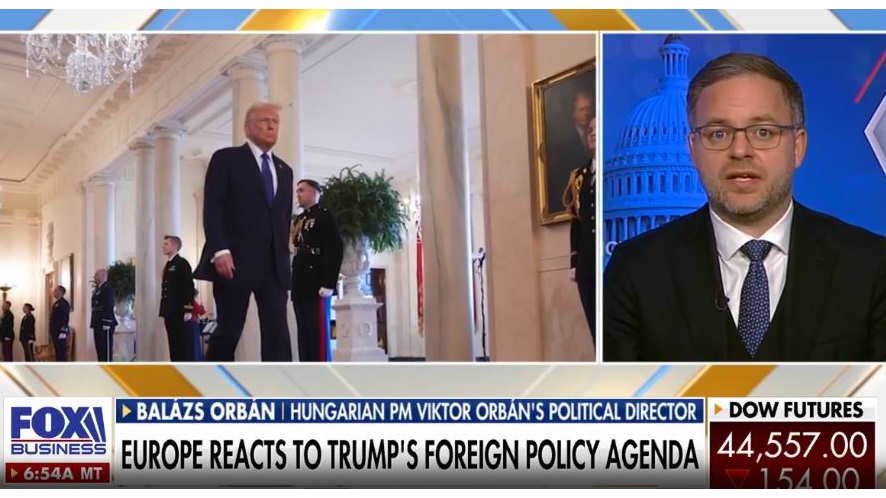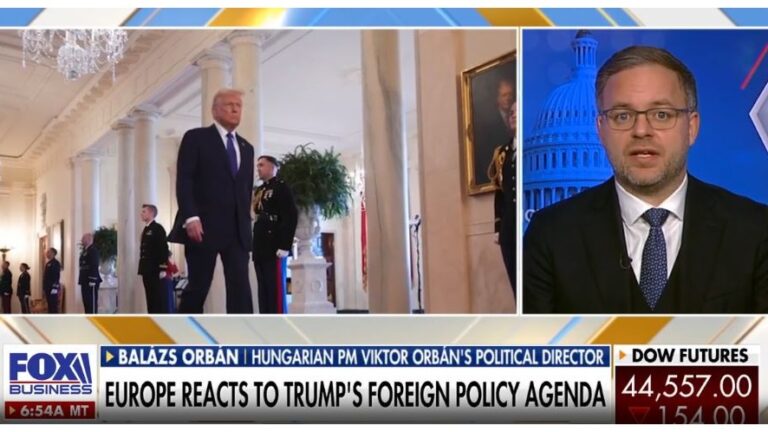Finance Minister Mihály Varga articulated the need for sober and measured political strategies, emphasizing that the government will continue to implement disciplined fiscal policies during the iCon economic policy conference held in Sopron on Saturday.
The minister stressed the importance of maintaining disciplined fiscal policies this year, aiming for an annual average inflation rate of around five per cent. He firmly asserted that until the inflation rate returns to a more moderate range, fiscal spending should be limited.
There is consensus that this year’s inflation will be significantly lower than last year, he said, describing the reduction from 25.7 per cent in January to 5.5 per cent in December as a ‘tremendous achievement.’ Minister Varga expressed optimism that January’s figures for this year would be even more favourable.
Varga highlighted the role of monetary policy as a crucial tool, stating that
it is now the time for yields and base interest rates to decrease.
The year 2024 is set to pose a significant challenge, as the approved budget requires reducing the state budget deficit from around 6 per cent to below 3 per cent. The minister opined that this could be achieved, but it would come at the cost of sacrificing growth, leading to an increase in unemployment, a consequence the government wishes to avoid. Considering the possibility of spreading the deficit reduction over two years instead of one, Minister Varga mentioned ongoing discussions within the cabinet, noting that a decision has not been reached. He argued that a more realistic approach would be a two-year plan, with the market likely accepting a deficit of 4 to 4.5 per cent for this year.
Discussing Hungary’s competitive corporate tax system, the minister highlighted the nation’s leading position in per capita foreign direct investment in the region. The government aims to maintain this position, acknowledging the benefits of attracting more such capital while recognizing existing limitations. Regarding personal income tax, he stated that the goal remains to keep it in single digits, but the current 15 per cent rate is ‘not bad’ either, positioning Hungary as the third-lowest in tax burden among European countries. He underscored the government’s success in delivering on the promise made in 2010 to operate a competitive tax system that does not penalize businesses and individuals.
Minister Varga, referring to government bonds, described them as a great success, ranking first among investments. He also highlighted three significant changes in the structure of state debt. Firstly, while 53 per cent of state debt was in foreign currency in 2010, that ratio has now decreased to 26 per cent. Secondly, the average maturity of state debt has increased to six years, compared to 3.5 years in 2010. Thirdly, the involvement of the population has grown,
with 21 per cent of state debt now held by Hungarian citizens,
compared to three per cent in 2010. He argued for the integration of financial literacy into the national curriculum, as sound financial decisions impact families throughout their lives.
He confirmed that the government intends to retain the baby bond, currently offering a 20 per cent interest rate.
Discussing digitization, he expressed the government’s desire to maintain competitiveness and efficiency. He hailed the electronic drafting of personal income tax declarations as a major success, with the National Tax and Customs Administration already preparing tax returns for two million individuals. This year presents a significant opportunity with the introduction of e-VAT and e-receipts.
Responding to a question,
Minister Varga clarified that the introduction of the euro is not a goal but a means.
He cited Slovakia as an example where adopting the euro did not necessarily lead to greater economic success.
Minister Varga also underscored the economic viability of Hungary, even without the previously blocked EU funds, highlighting the budget’s ability to meet necessary expenditures for family support, utility cost protection, and pension value preservation. The government anticipates an additional influx of over 2,500 billion forints in EU funds in 2024.
Related articles:
Sources: Hungarian Conservative/Ministry of Finance/MTI







